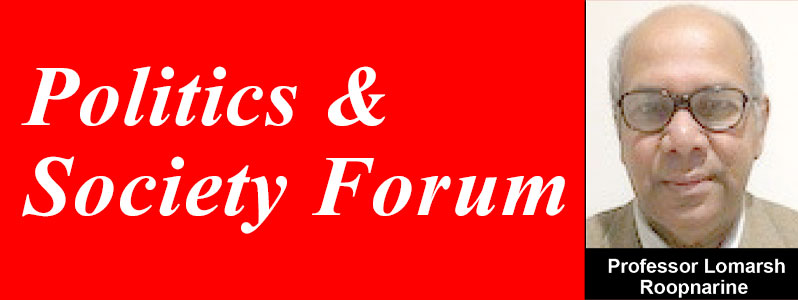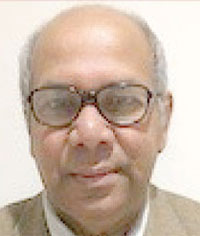LAST week, I declared that the APNU+AFC Coalition had received enough feedback from the citizenry to realise that its leadership was palliative, meaning that the Coalition was applying a band-aid rather than a solution-solving approach to meet the challenges of good governance. I referenced the closing of the sugar estates, and the results of local elections, as events which the Coalition chose not to acknowledge as messages that something did not seem right in the mud land. Instead, the Coalition slipped into a mudslinging mode and detoured the nation into a forest of foibles and fanaticism. Further, I suggested that the dismissive attitude of the Coalition towards anything that did not jibe and jive with its leadership style had rendered it into a caretaker status before the No-Confidence Motion (NCM).
I argue now that the Coalition made a serious mistake of believing that the statutory responsibility of going to the polls, within 90 days after the NCM was successfully passed on December 21, 2018, was innocuous and trivial. First off, the decision to challenge the NCM was a surprise. Desperation, however, forced the Coalition to embrace an argument from a group of outliers who believed that 33 is not a majority of 65. Although this move was intended to extend the political life of the Coalition, the unfolding events demonstrated that it had inflicted enormous damage to its political capital. The Coalition’s power grid of supervision and surveillance over Guyana’s affairs dwindled, conceding some power to the PPP/C opposition. The NCM forced the Coalition to govern on the logic of restraint, as opposed to, on the logic of freewill. The logic of restraint frustrated the Coalition to a point where it refused to acquiesce to any demands constitutionally placed on it, opting to maintain the spirit of grasping for power rather than upholding the letter of the law.
This stoic position called into question the entire edifice of the Coalition’s sincerity of good governance. AFC supporters such as those in Berbice and Canada, over time, broke away from the Coalition. They were convinced that the Coalition was deviating from its promised course of direction: transparency and inclusive governance. The citizenry, too, was convinced that the Coalition leaders were using the taxpayers’ money to pay overseas lawyers to strike down the NCM. The top brass of the Coalition was aware that the taxpayers were footing the bill for its expensive court cases. We are yet to hear a word from these individuals that the spending of taxpayers’ contributions for personal use was modus operandi.
Equally cataclysmic was that the decision to challenge NCM revealed more weaknesses rather than strengths of the Coalition. At the core was unnecessary imposed stress and trauma on the nation. The citizenry realised that the 33 was not a majority of 65 argument was risible, and what was thorning the side of the Coalition, was a shock from a sudden political blow from the PPP/C opposition. The continuous grasping to any possibility to discredit and defeat the successful NCM exposed the poppycock dimensions of the Coalition. The Coalition was casting about for an escape route, and in so doing, raised key questions: Why was the Coalition so reluctant to face the polls? What difference would one year later make in going to the polls as mandated by Guyana’s electoral cycle? If the Coalition was so successful in the recently held local elections in mid-2018, then what was the hold up of not going to the polls a few months later?
Some sections of Guyana were convinced that the Coalition lacked sufficient mental and moral aptitude, suffering from maniacal behaviour. It harboured sinister plans to buy time to rig the general elections in 2020. This thought was not farfetched. Moreover, the move to challenge a proven and passed NCM, promoted parochial and partisan interests, as well as divisiveness. What the Coalition had refused to acknowledge was that the gravitation to any opportunity to defeat the NCM was a subscription to the twin precepts of naked lust for power and political barbarism. The courts became the new places of comity and congress while the practice of good governance took a nosedive. The Coalition relied on a group of overseas lawyers and the courts to survive, caressing what social scientists call a theory of regulation. Instead of the Government regulating the lawyers, the lawyers were regulating the Government, a situation tantamount to placing the cart before the horse. This position was so symptomatic of what was so wrong with the Coalition, where the country was handed over to foreign lawyers, and the maxim, let the chips fall where they may, became the defining mantra of leadership. The way forward should have been to face the music and go to the polls before March 31, 2019, as constitutionally mandated. This decision would have situated the Coalition in a better place and saved the nation from a period of cryptic history (lomarsh.roopnarine@jsums.edu).




.png)









